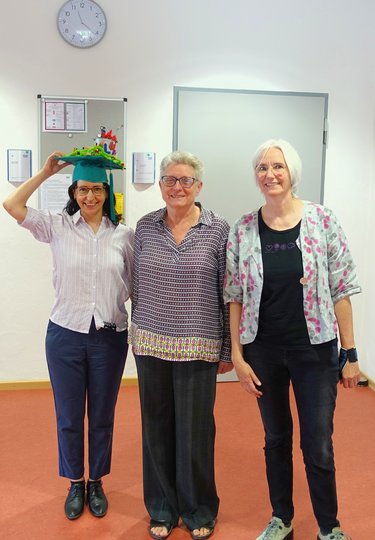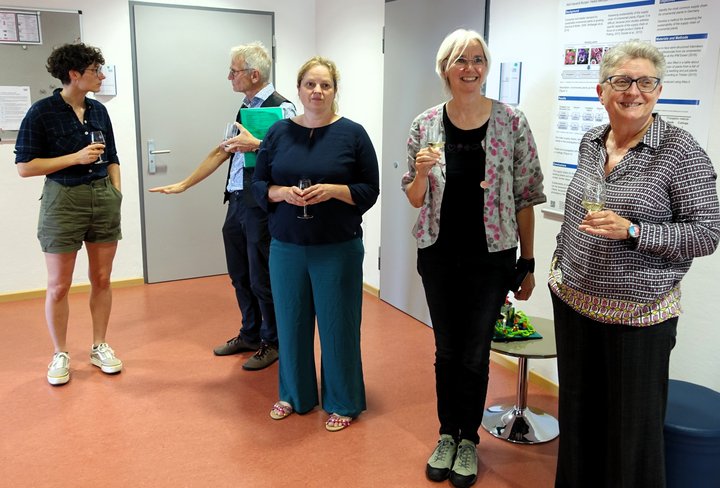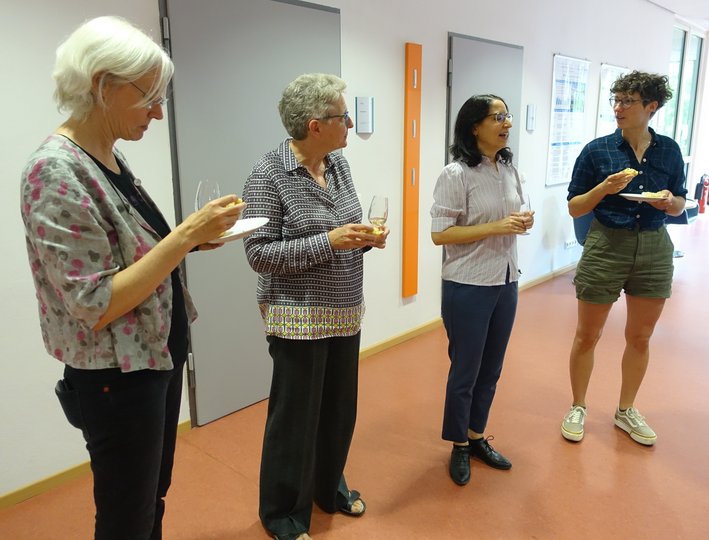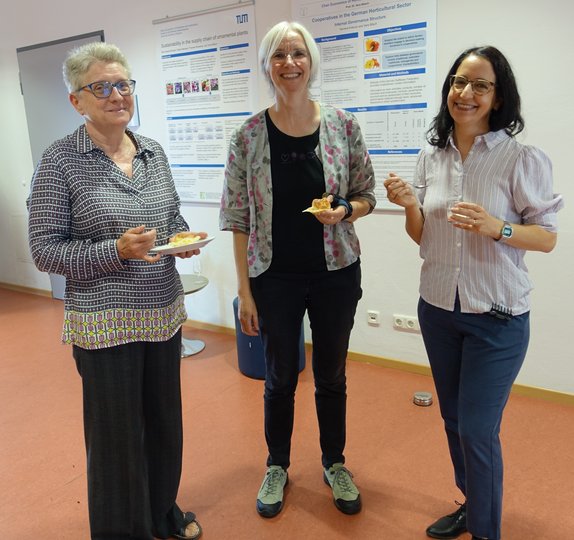Congratulations to Dr Nirit Havardi-Burger! Well done! We are proud to announce that Nirit Havardi-Burger has successfully defended her PhD thesis. Nirit discussed ‘A framework for sustainability assessment tailored to floricultural value chains’.
Abstract of her thesis
Floricultural products are criticized, emphasizing negative environmental and social impacts. This study developed an indicator-based sustainability assessment method, specifically for the value chain of flowering potted plants. The study employed a qualitative research approach, conducting interviews with chain actors. In the framework developed, social indicators are allocated based on regional differences and stakeholder groups. Environmental indicators are assigned to chain stages, and economic indicators are designed to assess the performance of chain actors.
Summary
Flowering potted plants (FPPs) are an important segment in the German market for ornamental plants, at an estimated 33% of the total market volume. Despite their economic and cultural importance, floricultural products are frequently criticized for their impacts on environmental and social sustainability.
Sustainability assessment is an approach for improving the sustainability performance of agricultural systems. Assessing the current sustainability state of a system supports chain actors in improving sustainability performance. A range of methods have been developed for the assessment of agricultural systems, among them indicator-based assessment methods. However, since the value chain of FPPs is not comparable to other agricultural systems, it cannot be assessed using the existing tools. A context-specific method is needed to assess the concrete sustainability challenges associated with the value chain of FPPs. Thus, the goal of this dissertation was to develop an indicator-based assessment method, specifically for the value chain of FPPs, considering the social, environmental, and economic dimensions of sustainability.
The study employed a qualitative research approach. The value chain and sustainability challenges were investigated by conducting twenty in-depth interviews with chain actors from different stages in the value chain. The data collected was analyzed through qualitative content analysis. The process of the framework development is a mixed top-down participatory approach, where stakeholders were involved in characterizing the value chain and the investigation of sustainability challenges. However, themes, subthemes, and suitable indicators were determined by the researcher. The indicators were extracted from the universal agricultural assessment tools Sustainability Assessment of Food and Agriculture Systems (SAFA) and Response-Inducing Sustainability Evaluation (RISE). New environmental indicators were developed to assess subthemes with no available indicators in the existing tools. Future practical development stages of the framework, such as determining the feasibility of indicators, will require further participation by stakeholders. The framework for the value chain of FPPs enables the sustainability performance assessment of single actors across the chain, but also the possibility for assessing the entire value chain. Environmental, social, and economic indicators were allocated differently across the value chain. Social indicators are allocated according to regional differences in provision of healthcare and social safety nets. Furthermore, a distinction is made between indicators for each stakeholder group: workers, consumers, and the local community, because each group is affected by different possible sustainability impacts. Environmental impacts are related to product-specific processes and therefore indicators are assigned differently to the chain stages: breeding, production, and distribution. Economic impacts may differ due to higher regional risk attributed to climate change or political stability. Implementing the assessment method will help determine areas of weak sustainability performance, and thus support actors in targeting their efforts for sustainability performance improvement. Furthermore, the framework provides the foundation for the development of future or existing standards, specific to the assessment of potted plants. In addition to the use for conducting sustainability assessment, the framework can also influence policy makers to promote policy changes and regulation by providing background and by eliciting discussion.
According to the present study, the driver for sustainability performance improvement in the floricultural sector is normative, due to pressure by stakeholders such as NGOs and retail chains. Adoption of sustainability innovations is the dominant strategy by chain actors to deal with pressure from upstream actors, and improve sustainability performance. In contrast, regulatory pressure was less influential in driving innovations in the floriculture industry.





